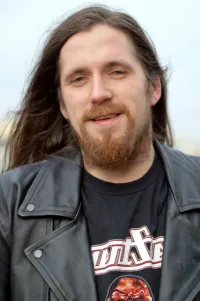
Marcel Wojzechowski is a Social Studies student in his 2nd semester. He is pursuing the Master of Education degree. Marcel’s second subject is Educational Science. He is, moreover, member of the departmental student committee.
What made you choose this degree programme?
To be honest, social science was a very popular subject at school with me. You deal with the reality of humans and use a scientific discourse to explain that reality; you discover hidden mechanisms that make our world tick. As far as the range of subject goes, you’re very flexible and can opt for a political, economic or sociological field of study, or combine any of them. In my opinion, everyone, from the theorist to the practitioner, is bound to be happy here.
In which respect have or haven’t your expectations been fulfilled?
Okay, so just as in any other degree course, you don’t have a great deal of freedom to begin with. It all starts with building a sound foundation based on which you’ll be able to take part in the discourse. The branch of Economic Science, for example, didn’t meet my expectations at all, even though it was that field that turned out to be quite interesting and remained so, to my great surprise.
As I said, as the degree course progressed my impression has been verified that it offers a huge diversity of subjects and combinations thereof. I observed socio-cultural class wars at the football pitch, studied youth subcultures and their socio-historical genesis and, as part of a seminar, me and my fellow students prepared a tour of the Phönix Lake for private visitors (to name but a few examples).
Which aspect of your degree programme do you enjoy most?
I very much enjoy working with my fellow students, especially in the departmental student committee, together with other students. As far as my favourite field of study is concerned, it has turned out to be sociology, because it’s so deeply connected with my favourite subject, namely different youth subcultures since 1945. Here, you can explain a lot with your own ideas, in connection with classic thinkers like Pierre Bourdieu.
What has been your biggest challenge to date?
As far as subject and discipline is concerned, I have felt I’m in the right place from the get-go. Getting to terms with the scientific approach, as opposed to the usual “school-like” text work, is the supreme discipline and it has led to several setbacks, before I managed to gain sustainable results. Like they say: “Practice makes perfect.”
What would you like to become after completing your degree?
My degree course prepares me for a career in the educational sector, or to be exact: with the Master of Education degree, I can start working in a school. After graduating with a teaching degree, I could imagine working in adult education, either in the private or the public sector.
Which advice would you like to give to students who consider enrolling in this degree programme?
The same advice I give every student, really: take part in our introductory courses, get involved, check out the things you’re interested in. If it’s politics, economy and society, there’s a lot for you to discover here, and you can see that for yourselves. Don’t let the initial impression that you’re being patronised discourage you. Two semesters later, you’ll recognise the purpose behind it. If you have any questions or doubts, you can always ask a fellow student in the tutor programme for help or go to the departmental student committee, which is something I did not do when I first started (laughs). It can only help.


